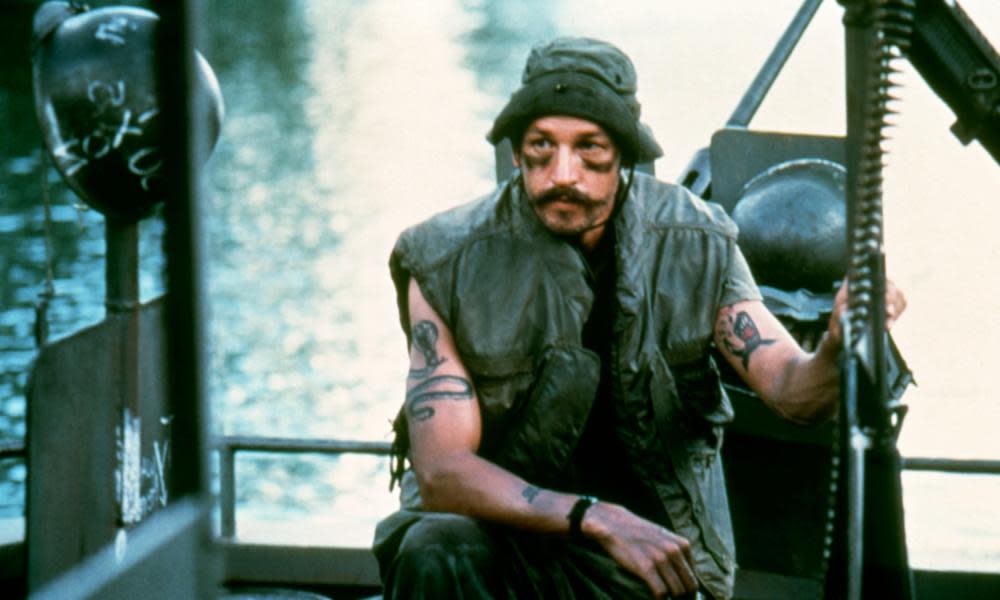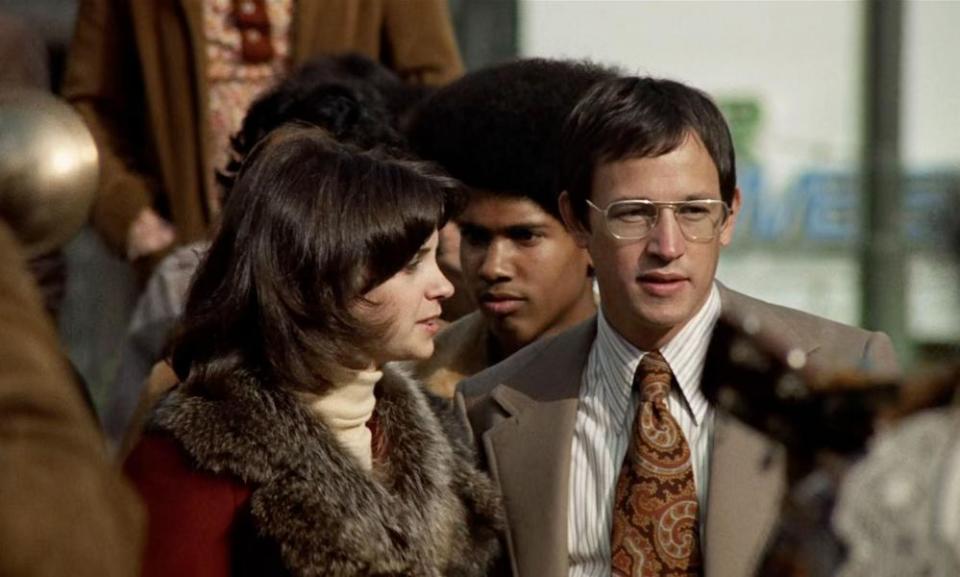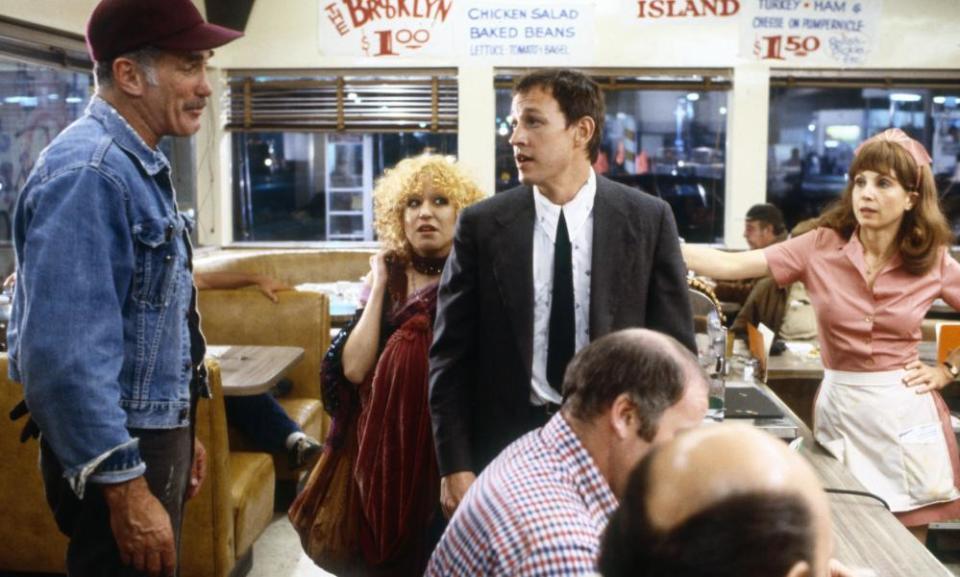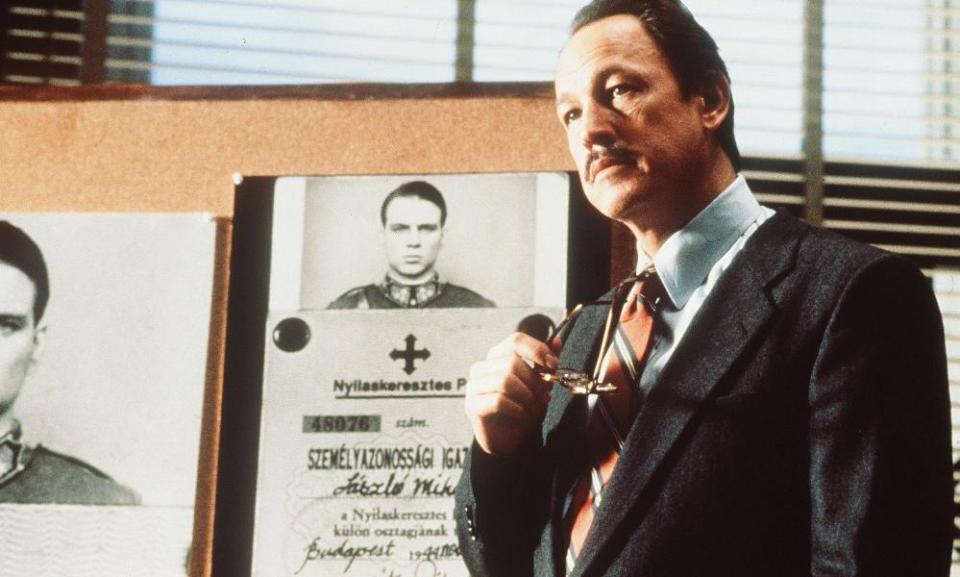Frederic Forrest obituary

“He’d kill us if he got the chance.” Those words, spoken by a bespectacled, beige-suited young man (Frederic Forrest) as he wanders through Union Square in San Francisco with his lover (Cindy Williams), are secretly recorded by the surveillance expert Harry Caul (Gene Hackman) in The Conversation (1974). Their meaning, mulled over at length, becomes vital in unlocking the story’s mysteries. One of the key thrillers of its decade, Francis Ford Coppola’s film was also an eloquent expression of paranoia in a country reeling from Watergate.
Forrest, who has died aged 86, was the ideal actor to throw certainties into doubt. In The Conversation, he is bookish, furtive and opaque. The audience never becomes properly acquainted with him, though recordings of his voice and image are repeatedly offered up for our scrutiny so that the act of studying his expressions and intonations becomes central to experiencing the film. Without realising it, we channel a good deal of energy into deciphering his motives.
If we are never quite successful, that may explain why Forrest did not become the star that some predicted he would. He was a consummate character actor, too complex and mutable to be limited to any persona. This seemed to be a source of mild frustration to him. “I would like not to have to fit into somebody else’s story and have my scenes cut because I’m too strong,” he said in 1979.

It was in that year that he was seen in the two films which brought him closest to stardom. Working again with Coppola on the Vietnam war epic Apocalypse Now, based on Conrad’s Heart of Darkness, Forrest played Chef, member of a platoon led by Willard (Martin Sheen), which ventures into Cambodia to kill the wayward Colonel Kurtz (Marlon Brando).
Forrest’s role here was nothing like his one in The Conversation, demanding instead a raucous, baffled bluster which is seen most demonstrably when he suffers a breakdown after a nocturnal encounter with a tiger. His wide, startled eyes, soup-strainer moustache and floppy hat with its upturned brim lent him a goofy, knockabout air. Even amid the film’s widespread carnage, his grisly eventual demise was strongly felt.
Also in 1979, he starred in The Rose, directed by Mark Rydell, whom he credited with teaching him how to “personalise” his acting through looseness and spontaneity. Bette Midler played a hard-living rock star based on Janis Joplin; Forrest was the sunny-eyed, straight-shooting Texan chauffeur with whom she connects emotionally and romantically. He received an Oscar nomination for the performance.

Coppola used him in two further projects. He was cast – or, arguably, miscast – as the dreamy romantic lead, a mechanic at the Reality Wrecking Company, in the ill-starred musical One from the Heart (1981). The movie was shot at crippling expense on glitzy sets designed to evoke a garish, heightened Las Vegas. He also played an automobile engineer in Coppola’s Tucker: The Man and His Dream (1988).
He was at his most winning in Martha Coolidge’s intelligent teen romcom Valley Girl (1983), in which he was the adorably laidback manager of a health food restaurant whose daughter (Deborah Foreman) is dating a Hollywood punk, played by Nicolas Cage. That young actor, who happened to be Coppola’s nephew, may have stolen the show, but seeing the two men together made it feel as if Forrest was passing on the mantle of risk-taker to a new generation.
Born in Waxahachie, Texas, he was the son of Virginia (nee McSpadden) and Frederic, who ran a furniture business and owned greenhouses from which he sold plants to local shops. Frederic junior was educated at Texas Christian University, in Fort Worth. His acting ambitions led him to New York, where he studied under Sanford Meisner. After a stint in the army, he made his stage debut in the off-Broadway show Viet Rock in 1966, then had small parts in both the 1968 stage version and 1969 film adaptation of Futz, a comedy about a farmer in love with a pig.
His first major screen roles were in When the Legends Die (1972), in which he starred as an 18-year-old Native American rodeo rider – though Forrest was 36 at the time – who is mentored by a seasoned veteran (Richard Widmark); and the crime drama The Don is Dead (1973). He played the title role in Larry (1974), the factually based story of a man wrongly admitted to a psychiatric institution for 26 years.
He also appeared in The Missouri Breaks (1976), a western with Brando and Jack Nicholson, and played Lee Harvey Oswald on television in Ruby and Oswald (1978). He was twice cast as the novelist Dashiell Hammett, first in Wim Wenders’s wryly speculative Hammett (1982), which proposed that the writer was caught up in a real-life mystery that inspired him to pen The Maltese Falcon, and later in the TV movie Citizen Cohn (1992), where he suavely resists the efforts of the virulent lawyer Roy Cohn (James Woods) to intimidate him into naming names during the anti-Communist witchhunts.
Other films include Abel Ferrara’s Elmore Leonard adaptation Cat Chaser, Costa-Gavras’s war-crimes drama Music Box (both 1989), the tardy Chinatown sequel The Two Jakes (1990), directed by Nicholson, and Trauma, a rare US excursion for the Italian horror maestro Dario Argento. In the thriller Falling Down (also 1993), Forrest had a scene-stealing turn as a cartoonishly villainous racist in a Los Angeles military surplus store.

On television, he starred in Stephen Frears’s Saigon: Year of the Cat (1983), written by David Hare, and was part of the sprawling ensemble in the acclaimed western Lonesome Dove (1989). In the BBC2 series Die Kinder (1990), he played a private detective hired by a woman (Miranda Richardson) whose children have been kidnapped by their father. John Frankenheimer directed him in the US civil war drama Andersonville (1996).
He also starred in The Brave, the only film to be directed by Johnny Depp, and Wenders’s The End of Violence (both 1997). His final appearance was alongside Sean Penn and Jude Law in All the King’s Men (2006), a political drama adapted from the Robert Penn Warren novel previously filmed in 1949.
His two marriages, to Nancy Ann Whitaker (1960 to 1963) and the actor Marilu Henner (1980 to 1983) both ended in divorce.
• Frederic Fenimore Forrest Jr, actor, born 23 December 1936; died 23 June 2023

 Yahoo Movies
Yahoo Movies 
